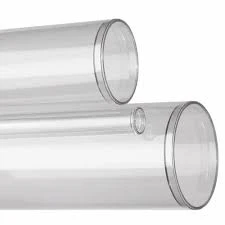Dec . 16, 2024 09:31 Back to list
pvc pipe drip irrigation
The Role of PVC Pipe in Drip Irrigation Systems
Drip irrigation is a highly efficient method of watering crops and gardens, minimizing water wastage while maximizing crop yield. One of the most essential components in a drip irrigation system is the piping that transports water directly to the roots of plants. Among the various materials available for irrigation piping, PVC (Polyvinyl Chloride) has emerged as a popular choice due to its numerous practical benefits. This article explores the advantages of using PVC pipes in drip irrigation systems, how they work, and their impact on sustainable agriculture.
Advantages of PVC Pipes in Drip Irrigation
1. Durability and Longevity PVC pipes are known for their impressive durability. They resist corrosion, rust, and degradation from chemicals and environmental factors, significantly outperforming materials like metal and wood. This durability translates to a longer lifespan and reduced replacement costs, making PVC a cost-effective option for farmers and gardeners alike.
2. Lightweight and Easy to Handle Compared to metal pipes, PVC is considerably lighter, which makes installation and transportation much easier. Farmers can handle and install the pipes without heavy machinery, reducing labor costs and increasing efficiency during setup.
3. Cost-Effective Solution The initial costs of PVC pipes are generally lower than alternatives, and their longevity further enhances their cost-effectiveness. Farmers benefit from reduced expenditure on both installation and maintenance, making PVC an attractive option for budget-conscious agricultural operations.
4. Efficient Water Delivery The design of PVC pipes allows for a smooth internal surface that minimizes friction loss, enabling efficient water flow. When integrated into a drip irrigation system, this means that water can be delivered directly to the plants’ root zones with minimal waste, maximizing the effectiveness of every drop.
5. Versatile and Flexible PVC pipes come in a variety of sizes and configuration options, making them suitable for different agricultural setups and scales. Whether for home gardens or large-scale farming, PVC can be easily customized to meet specific irrigation needs.
pvc pipe drip irrigation

How Drip Irrigation Works with PVC Pipes
Drip irrigation systems function by delivering water slowly and directly to the base of plants through a network of tubing and emitters. In a typical setup, PVC pipes serve as the main supply lines, distributing water from a source—such as a well or storage tank—throughout the field or garden.
The water is then channeled to emitters that are strategically placed near the root zones of the plants. These emitters use a series of small openings or valves to regulate the flow of water, allowing it to drip slowly and steadily. This targeted approach not only conserves water but also improves plant health by maintaining optimal moisture levels in the soil.
Environmental Impact and Sustainability
The sustainable use of water resources is one of the most pressing challenges in modern agriculture. Drip irrigation systems, especially those utilizing PVC pipes, play a crucial role in addressing this issue. By delivering water directly to plant roots, drip irrigation minimizes evaporation and runoff, which are significant issues with traditional irrigation methods.
Furthermore, the reduced water consumption associated with drip irrigation systems translates to lower energy costs for pumping water, contributing to a smaller carbon footprint for agricultural operations. As farmers increasingly seek environmentally friendly practices, PVC pipe-based drip irrigation systems present a practical and sustainable solution.
Conclusion
In summary, PVC pipes are integral to effective drip irrigation systems, offering a range of benefits from durability and cost-effectiveness to environmental sustainability. As the demand for efficient water use in agriculture continues to rise, understanding the role of PVC in drip irrigation is vital for farmers looking to optimize their resources while producing high yields. By embracing modern irrigation technologies and materials, such as PVC, the agricultural sector can move towards a more sustainable future, ensuring that we can meet global food demands without compromising our precious water resources.
-
Durable Glossy PVC Rigid Sheet | Premium High-Shine Panels
NewsAug.26,2025
-
Durable PP Rigid Sheet: Lightweight, Chemical Resistant Solutions
NewsAug.21,2025
-
PVC Grey Sheet for Extraction: Chemical Resistant & Durable
NewsAug.19,2025
-
Durable PVC Pipe Fittings for Plumbing & Irrigation Needs
NewsAug.18,2025
-
HDPE Steel Belt Reinforced Spiral Corrugated Pipe | High Strength
NewsAug.17,2025
-
HDPE Pipe Fittings: Durable, Leak-Proof Solutions
NewsAug.16,2025

